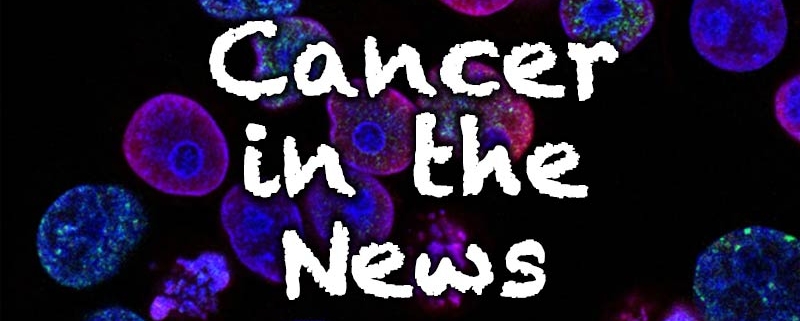Treatment Developments and discoveries, Her2+ Treatments, Brain Metastases
18th issue: Contents
- Sharp Increase in Cancer Incidence and Mortality From 2020-2040
- Synthetic chemical in consumer products linked to early death
Cancer & Chemo
- ARG-BC Score Excellent Predictive Tool for chemotherapy toxicity
- Chemo Brain Less Likely in Women Who Exercise
Cancer & Covid
- ‘The Next Wave’ in Cancer Vaccines
- Do Some Cancer Drugs Protect Against COVID-19?
- Long COVID Appears to ‘Impair’ Survival in Cancer Patients
HER2+ Breast Cancer
- ‘Astonishing’ PFS Improvement in Metastatic HER+ Breast Cancer
- Treatment of HER2+ Breast Cancer and Brain Metastases
- Updates From ASCO 2021 for HER2+ Breast Cancer
- HER2-Positive Breast Cancer Diet
- Product Profile of Margetuximab for HER2-Positive Breast Cancer
• Sharp Increase in Cancer Incidence and Mortality From 2020-2040
“A new analysis… suggests that cancer incidence will rise by 21% between 2020 and 2040…Cancer mortality is expected to increase by 32% over the same period.”
My two cents: There are a few disclaimers on assumptions but it is an interesting read, nonetheless and proof to me that we live in an increasingly toxic world and must play an active role in maintaining our health.
Cancer & Chemo
“This study demonstrates that the CARG-BC score is a helpful predictive tool for the development of grade 3-5 chemotherapy toxicity in older adults with early stage breast cancer. The model includes the following eight predictors:
- Stage II/III breast cancer
- Planned anthracycline-based regimen
- Planned duration of treatment greater than 3 months
- Abnormal liver function
- Anemia
- At least one fall in the past 6 months
- Limited ability to walk more than 1 mile
- Lack of someone to give good advice in a crisis”
My two cents: All my friends Ive lost to cancer, I actually lost to the toxicity of western treatments before cancer had a chance to kill them,. Nor everyone can handle the toxicity, especially older patients. In my case, I believe my naturopathic protocol, which included regular detoxification, nutritional balancing, and immune system boosting, got me through 13 cycles of 5 different chemos and over 50 radiation treatments.
• Chemo Brain Less Likely in Women Who Exercise
“More than 75% of people diagnosed with breast cancer say they have cognitive problems during chemotherapy. In some cases, people can have cognitive problems several years after completing chemotherapy. Women diagnosed with breast cancer who exercised before, during, and after chemotherapy were less likely to have thinking and memory problems, commonly called chemo brain.”
My two cents: We knew this but its nice to have corroboration again.
More on this study: • Exercise and Cognition in Patients With Breast Cancer
Original published study: • Physical Activity Patterns and Relationships With Cognitive Function in Patients With Breast Cancer Before, During, and After Chemotherapy
• Synthetic chemical in consumer products linked to early death
“Phthalates, found in hundreds of consumer products such as food storage containers, shampoo, makeup, perfume and children’s toys, may contribute to some 91,000 to 107,000 premature deaths a year among people ages 55 to 64 in the US.”
My two cents: Phthalates are some of the most insidious and ubiquitous toxins to be avoided at all costs that I discuss in my protocol book. Its nice to have more science to back it up. In addition to gumming up our immune systems, these toxins mess with our endocrine systems, which can have devastating effects on child development.
Cancer and Covid
• ’The Next Wave’ in Cancer Vaccines
“the messenger RNA technology used to develop two of the COVID-19 vaccines could be used to treat cancer. The technology, which has been around since the 1990s but wasn’t widely used until now, carries instructions into the body to make proteins that prime it to attack a specific virus. The same principle can be applied to help a patient’s immune system to attack a tumor.”
My two cents: Maybe Covid has a silver lining after all.
• Do Some Cancer Drugs Protect Against COVID-19?
“Certain cancer drugs that lower levels of angiotensin-converting enzyme 2 (ACE2) may offer some protection against infection with SARS-CoV-2, suggests a new study. Those drugs include TOR/PI3K inhibitors (everolimus, temsirolimus, and alpelisib), antimetabolites (decitabine and gemcitabine), mitotic inhibitors (cabazitaxel), and other kinase inhibitors (dasatinib and crizotinib).”
My two cents: Interesting. Don’t know how common these drugs are, though.
• Long COVID Appears to ‘Impair’ Survival in Cancer Patients
“the data suggest that post-COVID-19 complications may “impair” patients’ cancer survival as well as their cancer care. The 15% of cancer patients who had long-term COVID-19 complications were 76% more likely to die than those without sequelae. Cancer patients with COVID-19 sequelae were significantly more likely to permanently stop taking their systemic anticancer therapy, and they were more than 3.5 times more likely to die than those who continued their treatment as planned.”
My two cents: I find this surprising since chemotherapy does not boast such high success rates to account for this.
HER2+ Breast Cancer
• ‘Astonishing’ PFS Improvement in Metastatic HER+ Breast Cancer
“At present, the standard of care for these patients is trastuzumab emtansine (T-DM1, Kadcyla). It has held this position since 2013. In the DESTINY-Breast03 trial, the two agents were pitched against one another, and trastuzumab deruxtecan (Enhertu) won.”
My two cents: The data on PFS (Progression-free survival) is pretty significant… Enhertu (25.1 months) beat the crap out of Kadcyla (7.2 months).
• Drug shows revolutionary results in extending life for tough-to-treat breast cancer
• Treatment of HER2+ Breast Cancer and Brain Metastases
Panel of doctors discussing their approaches to treating patients with HER2-positive breast cancer and brain metastases.
“If I know that somebody has brain [metastases], that’s going to push me much more toward using or thinking about tucatinib” “The brain has become an SRS heaven. And patients are doing great, and they’re tolerating their treatment well.”
• Updates From ASCO 2021 for HER2+ Breast Cancer
Panel of doctors discussing recent developments in HER2+ treatment. Includes discussions on Tucatinib, treating Her2+ HR- vs. HR+ patients, and patients with leptomeningeal brain disease.
My two cents: Even though my brain “tumors” are apparently not tumors after all, I’ve been following this for so long, I still find it interesting. Tucatinib and SRS seems to be the preferred way to go, western treatment-wise.
• HER2-Positive Breast Cancer Diet
“Foods to eat, Foods to avoid”
My two cents: It says to eat citrus because of flavonoids that slow the growth of HER2+ cells. But check with your doctor or do your research because citrus is contraindicated with the use of some chemo therapies because it can increase the chemo’s effectiveness, making your dose more toxic than usual.
• Product Profile of Margetuximab for HER2-Positive Breast Cancer
“We’ve advanced to antibody-drug conjugates, where we’re tacking on a cytotoxic component, and bispecific monoclonal antibodies [that] have dual binding. It’s a bispecific monoclonal antibody, and it has 2 binding sites. It has one binding that targets the HER2 receptor. It’s been genetically modified and engineered to bind to the natural killer [NK] cell. When it binds to the NK cell, the idea is that you’re enhancing the antibody-dependent cellular cytotoxicity.”
My two cents: I find monoclonal antibody treatments exciting because they are so much less toxic than cytotoxic chemo therapy and can be so much more effective. Margenza binds to the same receptors as Herceptin (both different than Perjeta), has about the same chance of cardiotoxicity as Herceptin, but has a higher rate of infusion-related adverse events. This article doesnt really discuss the cytotoxic component or how this drug compares to Kadcyla but with the recent news about Enhertu, I’d thunk about Enhertu if Herceptin and Perjeta stopped working. But Maybe Margenza would be a third choice? It’s nice to have choices.
Cancer in the News has a posting frequency of once every one to two months.


